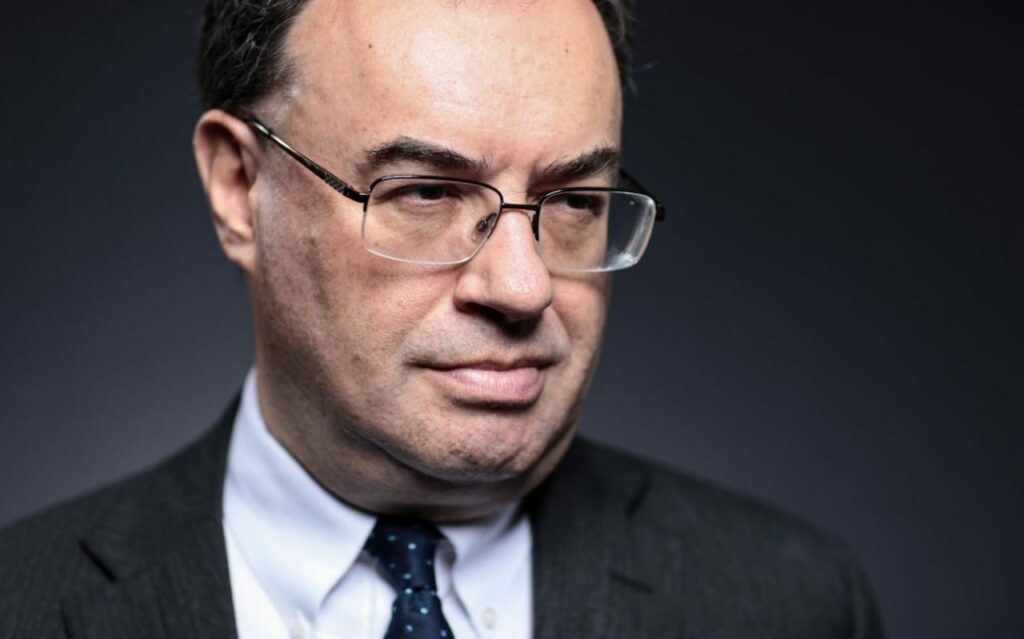Digital Zeitgeist – Will the Bank of England Follow the United States as it Raises Interest Rates Another 75 Basis Points in an Effort to Combat Inflation?
The Federal Reserve decided to raise the rate by 0.75 percentage points for a second time in a row, raising it to 2.5%.
That returns it to its pre-pandemic level, with inflation currently at 9.1 percent.
The Bank of England (BoE) has increased interest rates five times since December, from 0.1% to 1.25%, and it appears that it will do so once more next week.
In its fight against inflation, the American central bank last night proceeded with yet another enormous interest rate increase.
The benchmark rate is now between 2.25 to 2.5% after the Federal Reserve decided to raise it for a second time in a row by 0.75 percentage points. With inflation reaching a 41-year high of 9.1%, that returns it to pre-pandemic levels.
The hefty increase comes just a month after it last bumped up rates by 0.75 percentage points, the biggest rise since 1994. Some traders anticipated a much higher increase.
“I do not think the U.S. is currently in a recession,” Jerome Powell, the head of the Fed told reporters after the end of the U.S. central bank’s latest policy meeting, citing an unemployment rate that is still near a half-century low and solid wage growth and job gains. “It doesn’t make sense that the U.S. would be in recession.”
British eyes are now on what the Bank of England’s rate-makers do next after chairman Andrew Bailey hinted at a likely 0.5% change at its meeting next week. This follows prior votes by certain Monetary Policy Members for a more substantial increase.
However, concerns about the US economy’s health seemed to be emerging, and the Fed remarked that statistics on spending and output had “softened”.
When inflation becomes unmanageable, central banks often increase interest rates. This should, in principle, help keep prices in check by promoting saving over consumption.
However, officials worry that too aggressive rate rises would put the post pandemic recovery on hold.
We anticipate seeing very turbulent markets as the tug-of-war between inflation and recession worries plays out in the second half of the year, according to Richard Flynn, UK managing director at investing company Charles Schwab.
Workers have been in great demand since pandemic lockdowns ended, resulting in record low rates of unemployment.
However, analysts have cautioned that this might now start to reverse as firms attempt to make savings after being severely impacted by increased prices and the growing cost of borrowing.
According to Marcus Brookes, chief investment officer of Quilter Investors, “It will fuel concerns that the United States is on the verge of entering a recession.” Since the labour market is still extraordinarily tight, any deterioration in those numbers should not come as a surprise.
Jerome Powell was facing a “difficult balancing act,” he continued. As a result of the pandemic, global demand for commodities, services, and labour has outstripped supply, causing inflation to surge.
But the 75-basis-point rate increase announced by the Fed on Wednesday, coupled with earlier actions in March, May and June, has now jacked the central bank’s overnight interest rate from near zero to a level between 2.25% and 2.50%. That is the fastest tightening of monetary policy since former Fed Chair Paul Volcker battled double-digit inflation in the 1980s.
The cure then involved back-to-back recessions.
Consumer prices haven’t yet breached the 10% annual mark this time – but at 9.1% they are close enough to raise the stakes for both the Fed and the Biden administration, which is particularly sensitive on the issue ahead of congressional elections in November.
While Powell said he did not think a recession would be needed to fix the problem this time, he acknowledged that the economy was slowing and would likely need to slow more for the Fed to bring the pace of price increases back to earth.
Since Russia invaded Ukraine, the cost of food and energy has risen dramatically as well. Inflation is at a record 8.6% in the eurozone and a 40-year high of 9.4% in the UK.
In a frantic effort to rein in inflation, central banks throughout the world have started boosting interest rates. The Bank of England has increased interest rates five times since December, from 0.1% to 1.25%, and it appears that it will do so once more next week.
This month, the European Central Bank (ECB) increased rates for the first time in the Eurozone in 11 years, by 0.5 percentage points, from minus-0.5% to zero. The largest rate increase in the UK since 1995, according to Bank of England Governor Andrew Bailey, might take place during the organization’s next meeting, which is scheduled for next week.
online sources: thisismoney.co.uk, reuters.com All opinions and views expressed or suggested by the Digital Zeitgeist are not necessarily the same opinions and views held by or suggested by GPM-Invest plus any and all partners, affiliates, parties, or third parties of GPM-Invest. Any type of media distributed by GPM-Invest IS NOT financial advice. Please seek advice from a professional financial advisor

